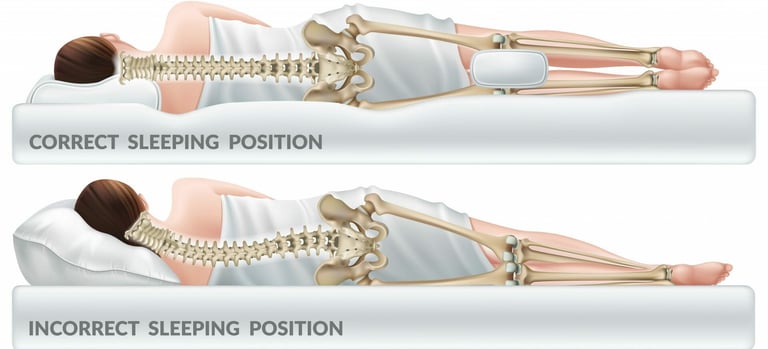Welcome to Our Practice: Sleep Quality
Sleep Quality
The average person spends about one-third of their life sleeping, but why do we need so much sleep? Simply put, the quality and length of our sleep have a significant impact on the quality of our waking hours. Without restorative sleep, our bodies can't heal, repair, or rest properly; our energy can’t be replenished, and vital hormones aren’t released.
What Happens While You Sleep?
Sleep is divided into four main stages, each of which plays a critical role in your body’s function and restoration.
Stage 1: The transition from wakefulness to sleep. During this light sleep stage, your body starts to relax.
Stage 2: This is the stage where you spend most of your sleep time. Your heart rate and breathing become slower and more regular.
Stage 3: The deep restorative stage, where your body repairs and heals itself.
REM Sleep: Rapid Eye Movement (REM) sleep occurs about 90 minutes after you fall asleep, and it recurs about every 90 minutes throughout the night. REM is when your brain is most active and when most dreaming occurs.
How Much Sleep Do You Really Need?
Sleep needs vary by age, but most adults require between 7 to 9 hours of sleep each night to enjoy the full benefits of rest. You’ll know you’ve had enough sleep if you wake up feeling refreshed and alert. If you often feel the need to nap during the day, you might need more sleep at night.
If you find it difficult to fall or stay asleep, there could be many contributing factors. A great place to start is by practicing good sleep hygiene—and no, we’re not just talking about brushing your teeth before bed (though that helps too!).
Sleep Hygiene: Tips for Better Sleep
Good sleep hygiene is essential for helping your body unwind and prepare for rest. Here are some tips to improve your sleep quality:
Avoid stimulants like caffeine, alcohol, and nicotine, as well as foods that may disrupt digestion, a few hours before bed.
Establish a consistent bedtime routine, going to bed and waking up at the same time each day (even on weekends) to help regulate your body’s internal clock.
Create a sleep-friendly environment: Keep the room dark, quiet, and cool. Avoid blue light from screens such as TVs, phones, and tablets, which can interfere with your sleep cycle.
Go to bed early: Studies show that going to bed no later than 11 p.m. can improve sleep quality.
During the day, regular exercise and exposure to natural light can help reinforce a healthy sleep-wake cycle.
Chiropractic Care and Sleep Problems
Many patients report an immediate improvement in sleep following chiropractic adjustments. The reasons for this are varied: chiropractic care may help reduce nerve irritation or pain that is disrupting your sleep, improve circulation, or promote overall relaxation. Regardless of the cause, chiropractic adjustments can play a significant role in improving sleep quality.
Sleep is vital for your overall health and well-being. Without proper sleep, it’s nearly impossible to achieve full wellness, allow the body to heal, and recharge for the day ahead. If you’re struggling with sleep problems, we’re here to help. Ask us about how chiropractic care can help you sleep better and feel more refreshed.
Contact Us
If you have questions or need assistance, don't hesitate to reach out. We’re here to help you achieve better sleep and overall wellness.




Parkway Chiropractic and Rehab
© 2024. All rights reserved.
⏰ Office Hours
🌟 Monday to Friday:
🕘 9:00 AM – 6:00 PM
🌟 Saturday:
🕘 9:00 AM – 12:00 pm


